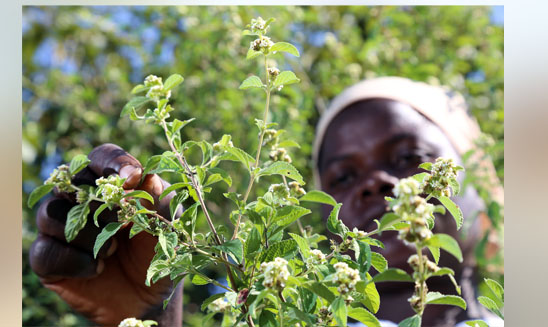
The Sunday Mail

Sam Mandivheyi —
I have been researching on Makoni-Zumbani tea for the past decade and have drawn interesting conclusions. Before getting into my findings, it would be prudent to state that I began researching on Makoni tea before enrolling with the School of Research at the University of Zimbabwe.
I am a holder of a Life Intermediary Certificate with The Insurance Institute of Zimbabwe, a Certificate in Traditional Medicine from the University of Zimbabwe’s School of Pharmacy, a member of the Traditional Medical Practitioners Council and I am in the process of acquiring a Degree in Religious Knowledge at the Greater Grace Bible College.
Now back to the tea.
I approached Chief Makoni and asked him why this tea is called Makoni. He told me that our forefathers knew that the tea came from a wonder tree that has medicinal properties to heal different diseases. The tea was named after King Makoni who would force his soldiers to drink it as he knew that it would give them stamina and quickly heal their war wounds.
I developed an interest and started drinking the tea. After about two months, I started seeing a lot of changes in my health. I had been diagonised of sugar diabetes and high blood pressure, but the tea somehow managed to suppress the conditions. Before I had started taking the tea, l would shake uncontrollably if any of my meals were late due to the effects of my sugar levels.
Now I can skip meals, I can even fast. My blood pressure has also stabilised.
Having benefited from the medicinal value of the tea, I was motivated to conduct some scientific research with the School of Pharmacy at the University of Zimbabwe. The research also took into consideration earlier studies on the tea. Because of our local discoveries, Professors from Pakistan, India and Brazil have taken a keen interest in this herbal tea.
Our research revealed that the tea helps regularize women’s menstrual cycles, it detoxifies blood and kills fibroids and might make barren women conceive. The tea is anti-diabetic, anti-oxidant and anti-microbial. According to the research, we found out that the tea has four to five times more zinc than that found in popular Rooibos tea.
Zinc is metal that fights prostate cancer and prostate enlargement disorders, according to medical experts. As a country, we are witnessing a rise in males with prostate problems with statistics showing that 60 percent of men above 45 years are likely to develop prostate complications. It is in that regard that the Makoni-Zumbani tea can detoxify the body, removing cholesterol and blood clots in the veins.
The result will be free-flowing blood. Makoni tea tastes like “normal” tea and is renowned for having over 80 medicinal properties. lt has been blended with Zumbani to make Makoni-Zumbani tea. Zumbani is anti-oxidant and when blended with Makoni, it slows the effects of both high and low blood pressure.
The results of the research have been made public and the tea is now being distributing to some supermarkets. Many people are turning to foreign countries for medical assistance, but at times we fail to realise that we have solutions in our backyards. Good health brings happiness and this tea is here to give you that. Many people were healed of various ailments by the tea and have testimonials.
However, it does not work instantly. It is a process and I do not encourage people to stop taking prescribed medicines. They should take the tea together with their prescribed medicines. Thereafter, they can go for their medical review after say a month of drinking it. We do not need to condemn our traditional herbs. As a person studying towards a Degree in Religious Knowledge, allow me to refer you to the Bible.
In Genesis 1 verse 29, God says, “I have given you every herb.”.
So why not use those herbs to acquire good health?
Preparing the Makoni-Zumbani tea
When the Makoni and Zumbani leaves are ripe, they are harvested before they dry up. The leaves are dried away from direct sunlight, usually under a shed to avoid loss of nutritional properties. Upon drying, water is sprinkled on the leaves to give them colour. Two to three weeks later, they will be ready for processing into tea through grinding after which the tea will be ready for drinking.
lt must be highlighted that the tea is packed without any additions. At most, half a teaspoon of the tea leaves is enough for a normal tea cup. The tea must be left for about two minutes to settle in boiling water. The tea can be taken with little sugar and milk.



